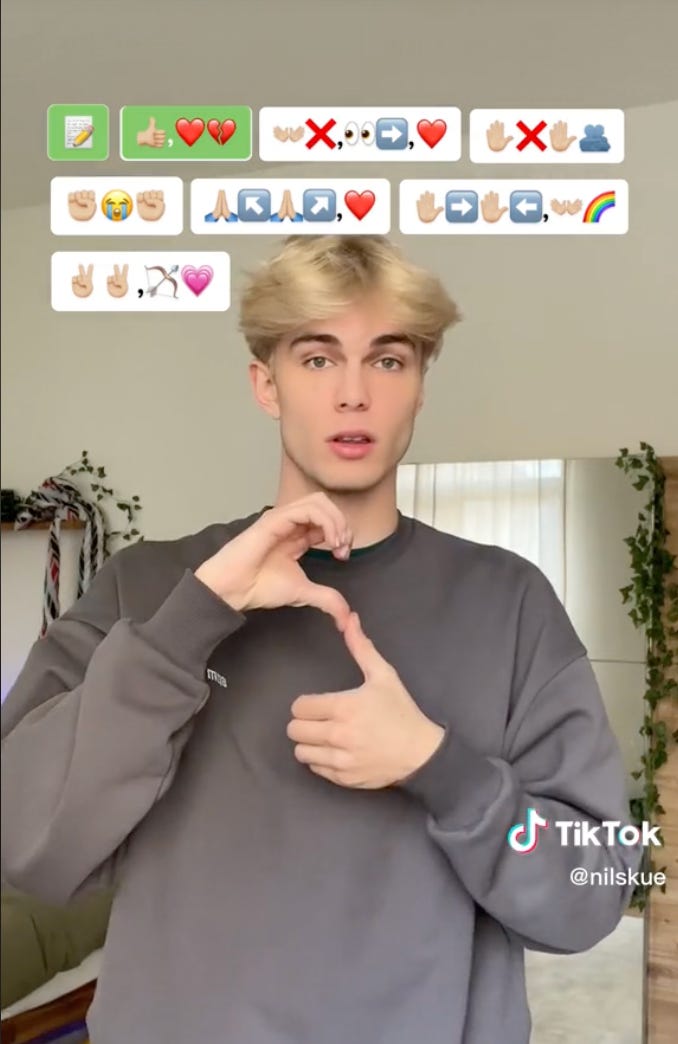How FIFTY FIFTY did in 4 months what the major K-Pop labels have been trying to do for decades
"Cupid (Twin Ver.)" has become a viral success in the U.S. — a testament to the power of a strong English version in building organic U.S. listenership.
FIFTY FIFTY, a four-member girl group under indie label ATTRAKT, was almost completely unknown to K-Pop fans and global music listeners a couple of months ago. Minor buzz the group generated with pre-debut songs like “Lovin’ Me” and a rave IZM review of the group’s late 2022 debut mini-album The Fifty was confined to niche internet corners like nugu promoter, a Twitter account dedicated to news and promotion of “underrated girl groups.”
The struggle of K-Pop groups that lack the vast resources and production capacities of the industry’s major labels is well-documented (and still debated). At their debut, FIFTY FIFTY was already deeply entrenched in this struggle, selling just 4,000 copies of the album and failing to rank on digital charts with debut single “Higher”. They were just one in a sea of other girl groups to appear in 2022, known as the “year of girl groups” for the overwhelming success of young acts from bigger companies — including the likes of IVE, LE SSERAFIM, NewJeans, and more. In this hyper-competitive landscape, FIFTY FIFTY was trapped in what many fans call “nugu-dom” — a portmanteau built on the Korean phrase “nugu?” (translating literally to “who?”).
That is, until everything changed a few weeks ago, when an English version of the group’s follow-up single “Cupid” exploded in Tiktok-fueled virality, shooting the group unexpectedly up global streaming charts at record speed. They’re not the first K-Pop group to go from obscurity to virality, but their rise with “Cupid (Twin Ver.)” represents a unique and potentially first-of-its-kind success with a song’s English version. It’s a feat quickly conquered by this indie label that the K-Pop titans have been trying to accomplish for decades.
At first or second listen, “Cupid” is a surprisingly simple tune for a viral K-Pop hit. It lacks the bombast of BLACKPINK’s “Pink Venom” or even the dance-ability of BTS’ “Dynamite”. It’s a song that feels almost too soft, too unoffending to be viral. But a closer listen reveals that “Cupid” is a sorrowful number wrapped in a deceivingly cheerful instrumental, atop which members Aran and Sio lament on the hopelessness of finding love. They blame Cupid for their sorrows — “I look for his arrows every day / I guess he got lost or flew away.” “Cupid” has the sadness of a sunny day in the park, sitting alone on a bench while everyone around you is embracing on a picnic blanket. It’s the sonic rendering of a To All the Boys I’ve Ever Loved Before-style romcom, the twinkly coyness of old-timey romance sung over Doja Cat-style disco.
“Cupid (Twin Ver.)” is an English recreation of the original Korean-language “Cupid”, which the group promoted on Korean music shows upon release in late February. English versions of K-Pop songs are not at all new — they date as far back as the late 90s. As K-Pop first gained Western attention in the late 2000s and early 2010s, groups like Girls’ Generation, 2NE1, and Wonder Girls made English versions of some of their hits. Wonder Girls’ English rendition of “Nobody” is especially known for appearing at #76 of the Hot 100 in 2009, a legendary entrance marking one of K-Pop’s first appearances on the chart. “The Boys” by Girls’ Generation, produced by American heavyweight Teddy Riley and the first K-Pop song to be promoted on American late-night TV, was another heavily promoted English/Korean crossover (albeit with more limited chart success).
Now that K-Pop’s international heyday has finally arrived, they are even more common. Popular groups like (G)I-DLE, TWICE, and ITZY regularly record English versions of their lead singles in hopes of gaining traction in the Western market. This onslaught of English versions, however, has not correlated exactly with lyrical quality. Often, for the big K-Pop companies, recording an English version can simply mean replacing the Korean lines with English ones, sometimes resulting in the occasional clunky phrasing or awkward lyricism. It’s an approach that has long-worked with K-Pop groups’ Japanese releases, so the proof-of-concept must have been sufficient to do the same in the English-speaking world.
Sometimes, the English lyrics lack coherence — even long-time fans of Girls’ Generation have adoringly remarked about the “The Boys”’ confusing English lyrics: “Call all emergency / I'm watching the phone ring / I'm feeling this in my heart.” (I love the song and know all the lyrics by heart, myself, just don’t know what they’re talking about!) “The Boys” is still legendary K-Pop Her-story, of course, just maybe not for its lyricism.
We can now say that the most successful English version of a K-Pop song does not come from a major-label act, but instead a no-name group with a song that was relatively unknown upon its release. That is, “Cupid (Twin Ver.)” by FIFTY FIFTY.
The song has already accomplished what very few other K-Pop groups have. It’s made FIFTY FIFTY the first 4th generation K-Pop group to enter the Top 10 of Spotify’s Top Songs U.S chart, beating gargantuan acts like SM-backed aespa or HYBE-backed NewJeans to the accomplishment. Perhaps more impressive, it entered the U.S. Billboard Hot 100 at #100 in early April, climbing up to the #60 spot over four weeks, making FIFTY FIFTY the fastest group in K-Pop’s history to appear on the chart (less than four months since their debut!). They’re just the sixth group in all of K-Pop’s history to appear on the chart, a list dominated by huge-label names like Wonder Girls, BTS, BLACKPINK, TWICE, and NewJeans. How did this happen?
What sets “Cupid (Twin Ver.)” apart from the other English versions is its thoughtful execution. Instead of cut-and-paste replacing Korean lyrics with English, this version takes extra liberty in altering the song and lyric structure to make a coherent English song. The first two lines of the Korean version’s first verse do not rhyme: “Bul kkeojin romantic all my life / Nae juwineun ontong lovely day”. In the “Twin ver.”, the songwriters not only alter the lyrics, but also shift the rhyme structure itself: “A hopeless romantic all my life / Surrounded by couples all the time.” It’s a small, but noticeable effort at making the listening experience seamless for an English listener.
English raps in K-Pop have become more common, but are still polarizing among fans. Some applaud a rapper performing confidently in a non-native language, but others (or maybe the same applauding fans) cringe at the sometimes awkward lyricism. GOT7’s Mark Tuan could probably tell you, himself a native English-speaker whose spoken-word rap in the otherwise-amazing “You Calling My Name” left fans cringing. Many times, the raps become not only laughable, but also appropriative. (Watch also: Lisa’s infamous “you gon finna catch me”…)
“Cupid (Twin Ver.)”, on the other hand, notably nixes the Korean version’s entire rap section performed by members Keena and Saena. A potentially harsh decision — cutting half the group out of a song — but also smart. They even ditch the Korean version’s key change in the final chorus, creating a smoother listen uninterrupted by rap sections and unwanted climaxes that may dilute the song’s longing romantic charm.
Interestingly, FIFTY FIFTY’s lack of previous success and fame may have made the English version more commercially viable to a U.S. audience. The “Twin ver.” could stand alone as a song with an independent message, not as an English version of an already-popular Korean song. Listeners could stumble across the song like they do any other song, without the potential stigma of “I need to be part of this complex fandom to truly understand this” that K-Pop sometimes carries for onlookers.
Instead of saying, “Hey U.S. fans! Take a look at us, we’re dropping here and you should stream!” as many big-label groups with already huge U.S. fanbases do, FIFTY FIFTY seems to have done something entirely different. They’ve released a gorgeously listenable English version that has earwormed its way into TikTok relevance among everyday U.S. listeners. “Cupid” has become a darling of sped-up versions, dance challenges, and lo-fi study playlists, more akin to the U.S. mainstream virality of Lizzy McAlpine’s “ceilings” or “i’m yours” by Isabel LaRosa than STAYC’s “Stereotype” or TXT’s “Anti-Romantic”, viral songs which grew popular on the platform with K-Pop fandom momentum behind them.
This is an entirely unprecedented kind of success for a K-Pop group, one pushed by the power of organic U.S. listenership instead of typical K-Pop promotional methods. And it’s accomplished with very limited investment what so many of the K-Pop’s huge conglomerate labels — even ones pouring millions of dollars into U.S. marketing and stateside appearances — have tried to do since the early 00s.
“Cupid (Twin ver.)” is, in some ways, a message to the K-Pop giants — your dollars and frills may not do what you think they’re doing, and having the odds stacked in your favor does not guarantee success. It’s not always about having the fastest choreography or latest couture. Sometimes, a catchy, twinkly earworm is all you need.
And above all, let “Cupid” be a lesson to all of us—perhaps the groups trapped in K-Pop’s nugu underbelly have more potential than we think they do. There may yet be hope for these groups, and it lies in nothing more than some good-old endearment wrought by clear and compelling lyricism (…and maybe an appeal to the TikTok gods). FIFTY FIFTY may be “fools for love,” but they’re anything but when it comes to releasing universally adored, record-breaking music.




![HD] Girls' Generation - David Letterman - The Boys 1/31/2012 [USA Debut] - YouTube HD] Girls' Generation - David Letterman - The Boys 1/31/2012 [USA Debut] - YouTube](https://substackcdn.com/image/fetch/$s_!CH9b!,w_1456,c_limit,f_auto,q_auto:good,fl_progressive:steep/https%3A%2F%2Fsubstack-post-media.s3.amazonaws.com%2Fpublic%2Fimages%2F1977fe4f-dd56-4c09-8679-c2bf48a96d9e_1280x720.jpeg)
